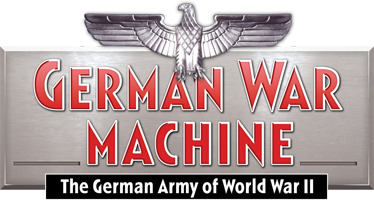24 February
Legal, Munich
All Germany watches Munich this morning for the political significance of the treason charges against Hitler, Ludendorff and eight co-defendants, the ramifications of which go far beyond their personal fate. The new republic and democracy is as much on trial as one of Germany’s most respected war heroes and a fanatic from Austria. Though they are on trial for treason, the odds are stacked in the defendants’ favour. First, public opinion favours them; second, the minister of justice, Franz Gürtner, is openly sympathetic to the Nazi cause; and finally, the presiding judge, Georg Neithardt, is a fervent nationalist who regards Ludendorff as a national treasure. Hitler defends himself brilliantly, though considering those who are judging him, he would have difficulty doing otherwise. In his closing remarks he portrays himself as a man of destiny: “Gentlemen, judgment will not be passed on us by you; judgment will be passed on us by the eternal court of history. This court will judge the accusations that have been made against us. The other court, however, will not ask: ÔDid you or did you not commit high treason?’ That court will pass judgment on us, on the General in command of the Quartermaster Corps of the old army, on his officers and soldiers, who as Germans wanted the best for their people and their country, who were willing to fight and die for it. Even if you find us guilty a thousand times over, the goddess of the eternal tribunal of history will smilingly tear apart the proposal of the Prosecutor and the sentence of the Court, because she will acquit us.” The trial that only the Putschists wanted comes to an end on April 1, and although Hitler has won the battle of propaganda, he is back in prison and for all he knew would remain there four and a half years. However, he becomes a national hero in Germany, while Ludendorff is acquitted altogether. To a large segment of the German public and to the Western world in general, though, the sentence is ridiculously mild for treason and armed uprising. The whole affair has been a stunning defeat for the Weimar Republic, but a triumph for right-wing nationalism.
April
Nazi Party, Reform of The SA
Ernst Röhm is charged with the reconstruction of the officially still-illegal SA. In an attempt to get around the government law, Röhm founds an organization known as the Frontbann, basically the SA under another name. The Frontbann, meaning “Front Band”, is formed as a substitute for the SA. Units are formed in various parts of Germany. Frontbann-Nord is founded in Berlin by Kurt Daluege, an ex-Freikorps member, and is destined later to be the basis of SA Gruppe Berlin-Brandenburg. In all the Frontbann numbers some 30,000 men.
May
Politics, Elections
With the Nazi Party outlawed and Hitler in prison, some members stand as the National Socialist Freedom Movement. In the first election of 1924 this grouping win nearly two million votes and 32 of its 34 candidates - among them Strasser, Rohm and Ludendorff - enter the Reichstag, the German parliament. The second election in December 1924, however, sees the National Socialist vote more than halve as the National Socialist Freedom Party loses 18 seats (the Reichstag has a total of 472 seats).
20 December
Legal, Landsberg
It is during his time in prison that Hitler dictates to Rudolf Hess, who has taken the position of his secretary, his book. Hitler initially titles it: Four and a Half years of Struggle against Lies, Stupidity and Cowardice. In it he attempts to set out his political dreams. However Amann, a rough, uncouth but shrewd and intuitive man, changes the title to Mein Kampf - My Struggle. He also arranges the publication of the book and organizes the royalties, which are to become Hitler’s main source of income. He later supervises the dozens of editions published during Hitler’s life, and with Gleichschaltung (the complete fusing of every element of German life into the Nazi social machine) of the press would become president of the Reich association of newspaper publishers and president of the Reich press chamber.
